In the face of Afghanistan’s growing healthcare crisis, women carpet weavers are stepping up to fill the gap. Through Label STEP’s Community Health Worker program, they’re providing basic medical care and health education in their own communities—offering support where it’s needed most.
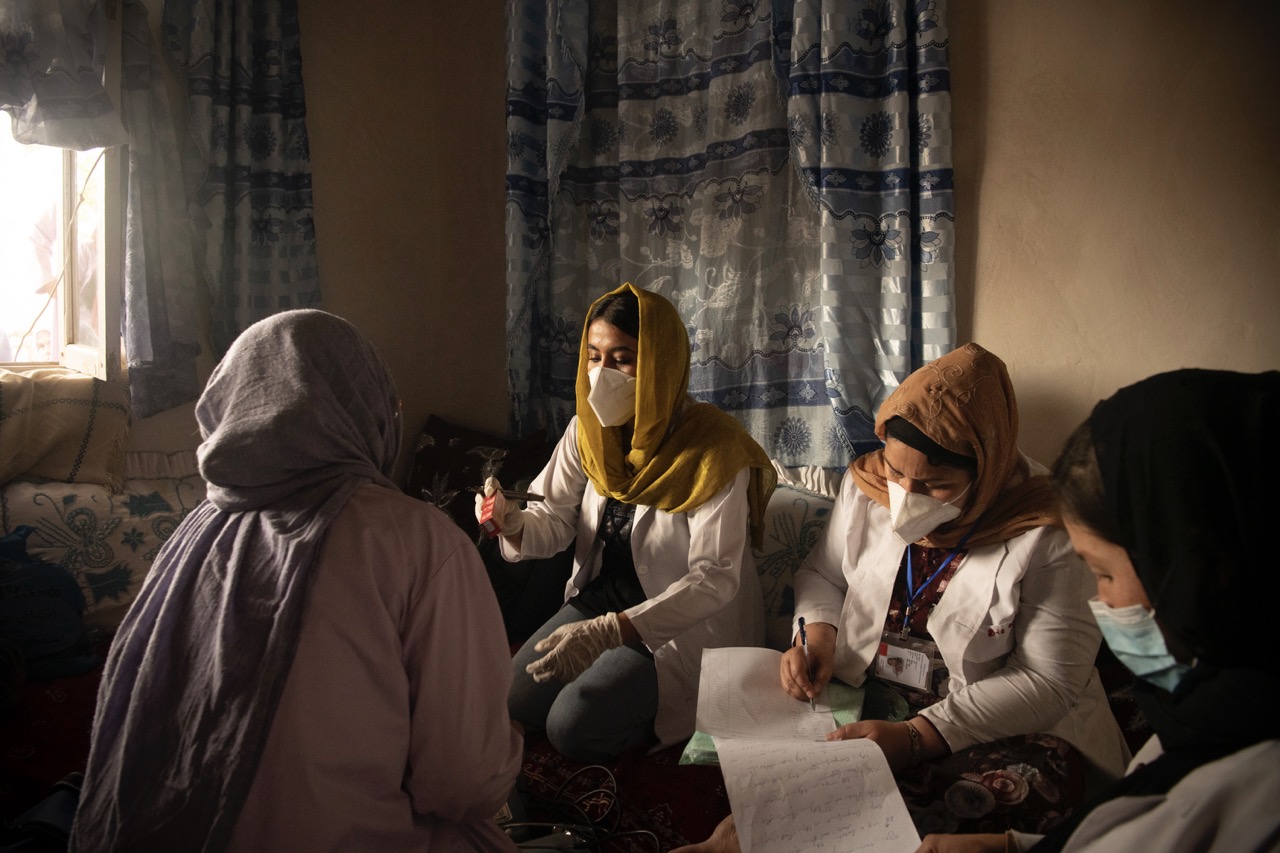
In Afghanistan, women in rural areas form the backbone of the country’s handmade carpet industry. They produce goods for international markets, often from their homes in small villages. Amid the ongoing humanitarian crisis—marked by economic collapse, a gutted healthcare system, and most notably severe violation of women’s basic human rights including restrictions on their education, movement, and employment—this dispersed group is one of the most underserved and vulnerable populations in the country. And many of these women live without access to even the most basic medical care.
To address this gap, Label STEP, in collaboration with Turquoise Mountain and USAID, first launched a Community Health Services program in 2022. The ongoing initiative trains volunteer weavers as Community Health Workers (CHWs) in 10–20 day sessions that equip them with the knowledge and tools to provide basic healthcare, raise awareness, and respond to local medical needs. The volunteers are also provided with basic first aid kits, including items such as antibacterial soaps, facial masks, napkins, small wound dressing materials, and beyond. In areas where formal clinics are closed or unreachable, these women have become a crucial point of access to care for their families and neighbors.
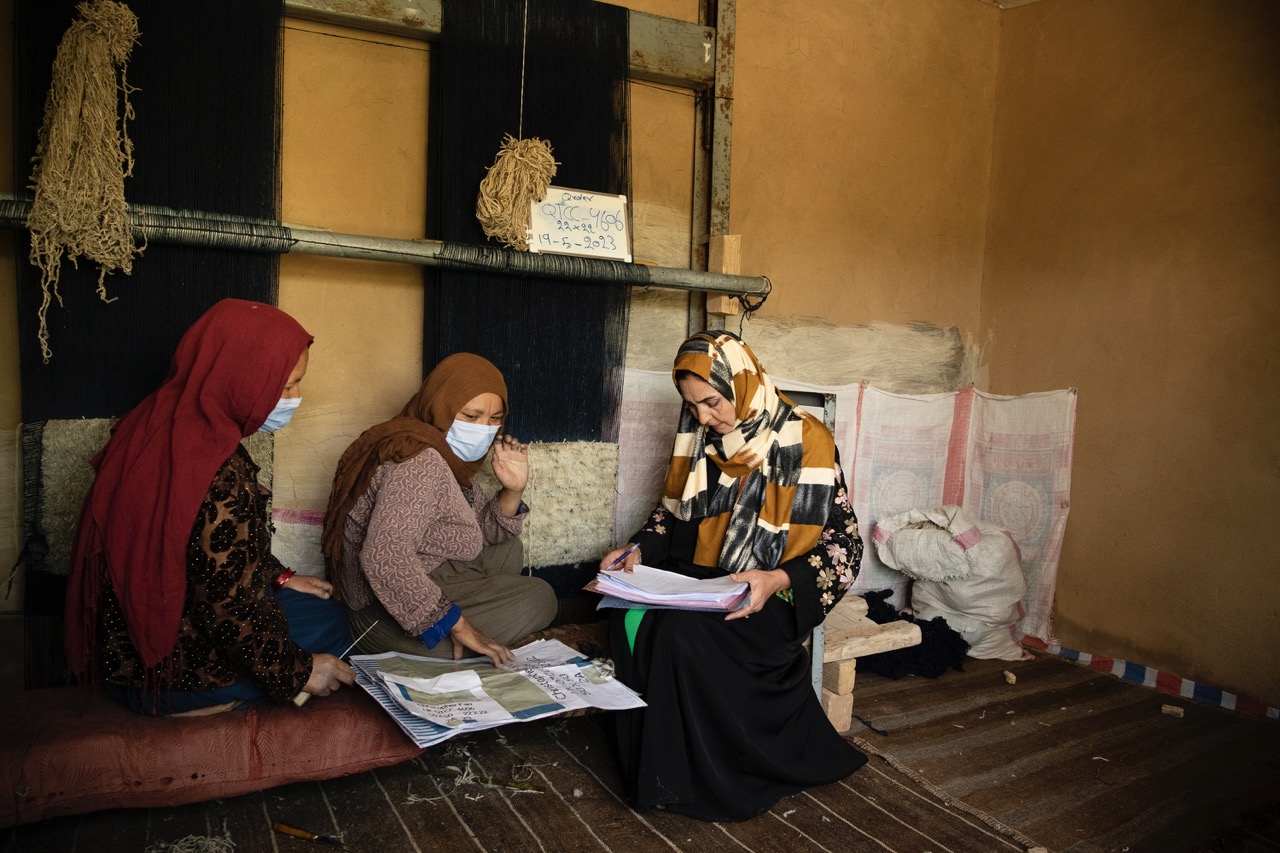
The program began with training in 50 villages and neighborhoods, where CHWs were taught to manage minor illnesses, provide first aid, and offer preventive health education. By the end of the first year, 521 health cases had been treated by CHWs. Today, the work has expanded considerably. The program includes 150 trained workers, grouped into three regional teams, all receiving regular training to cover new diseases and practices. In July 2025 alone, CHWs delivered 469 medical check-ups, provided 1,137 first aid services, and hosted 214 awareness sessions for 324 weavers. The previous two months saw similar results, with hundreds of adult weavers and their families receiving essential health services across Balkh and Jawzjan provinces. In areas with limited infrastructure and few qualified professionals, these numbers represent a meaningful contribution to community health.
Ziba’s Story: A Personal Mission with Community Impact
One of the clearest examples of the program’s impact comes from the story of Ziba, a 24-year-old weaver from a remote village. After witnessing many women and children suffer due to lack of medical knowledge and services, Ziba joined the CHW training program. Despite initial skepticism from her community, she worked persistently to build trust—going door to door, encouraging vaccinations, teaching hygiene practices, and guiding pregnant women to seek appropriate care. Her efforts paid off. Over time, she saw noticeable improvements in local health, with fewer preventable illnesses and more informed decision-making around care.
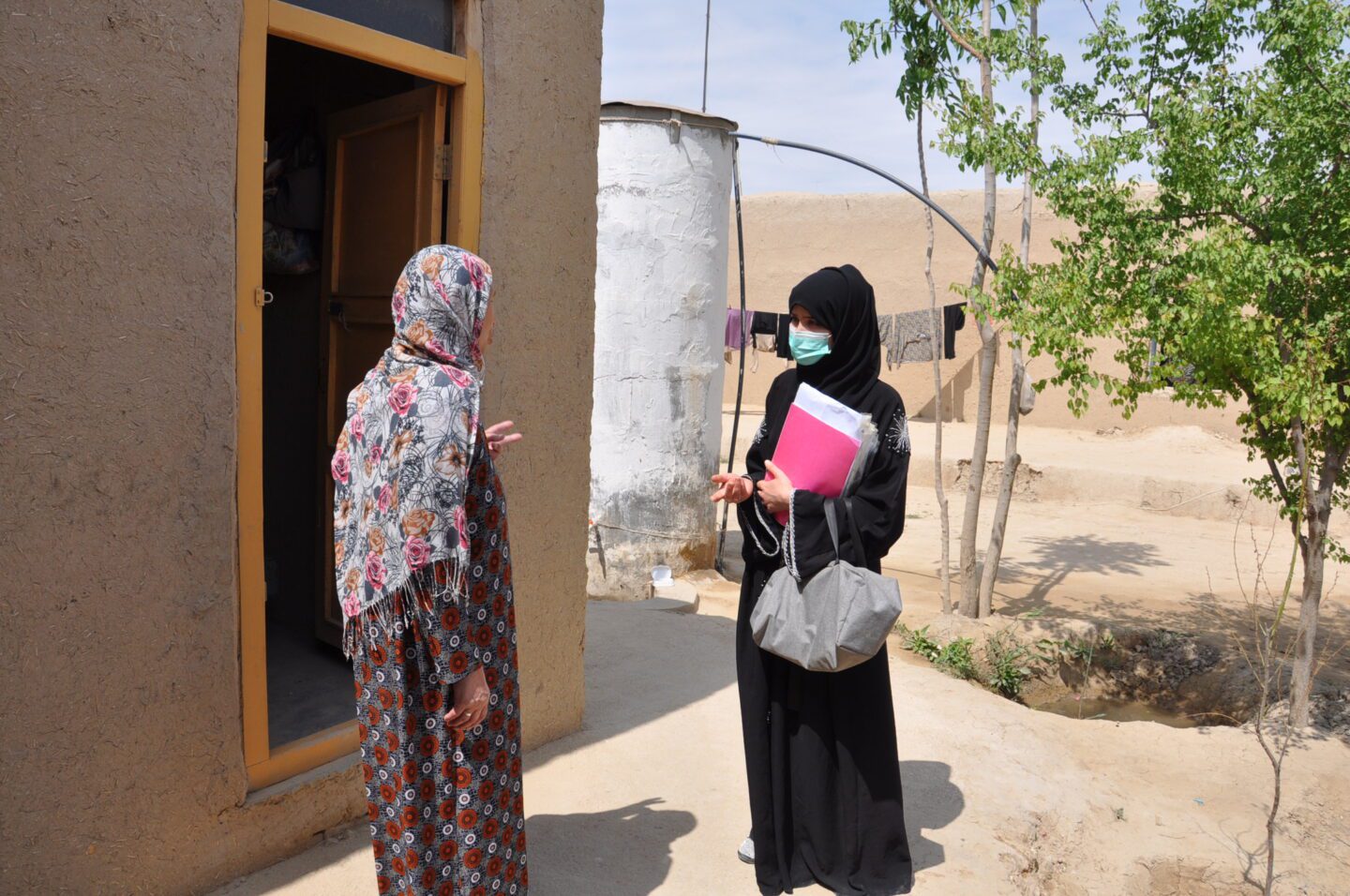
Ziba’s story illustrates how the CHW model can function even in highly restrictive environments. For women like her, healthcare has become both a personal mission and a way to support others facing similar barriers. According to Ziba, the program has helped her village not only through access to care but also by increasing knowledge about nutrition, hygiene, and disease prevention—topics that are rarely covered in formal education or outreach.
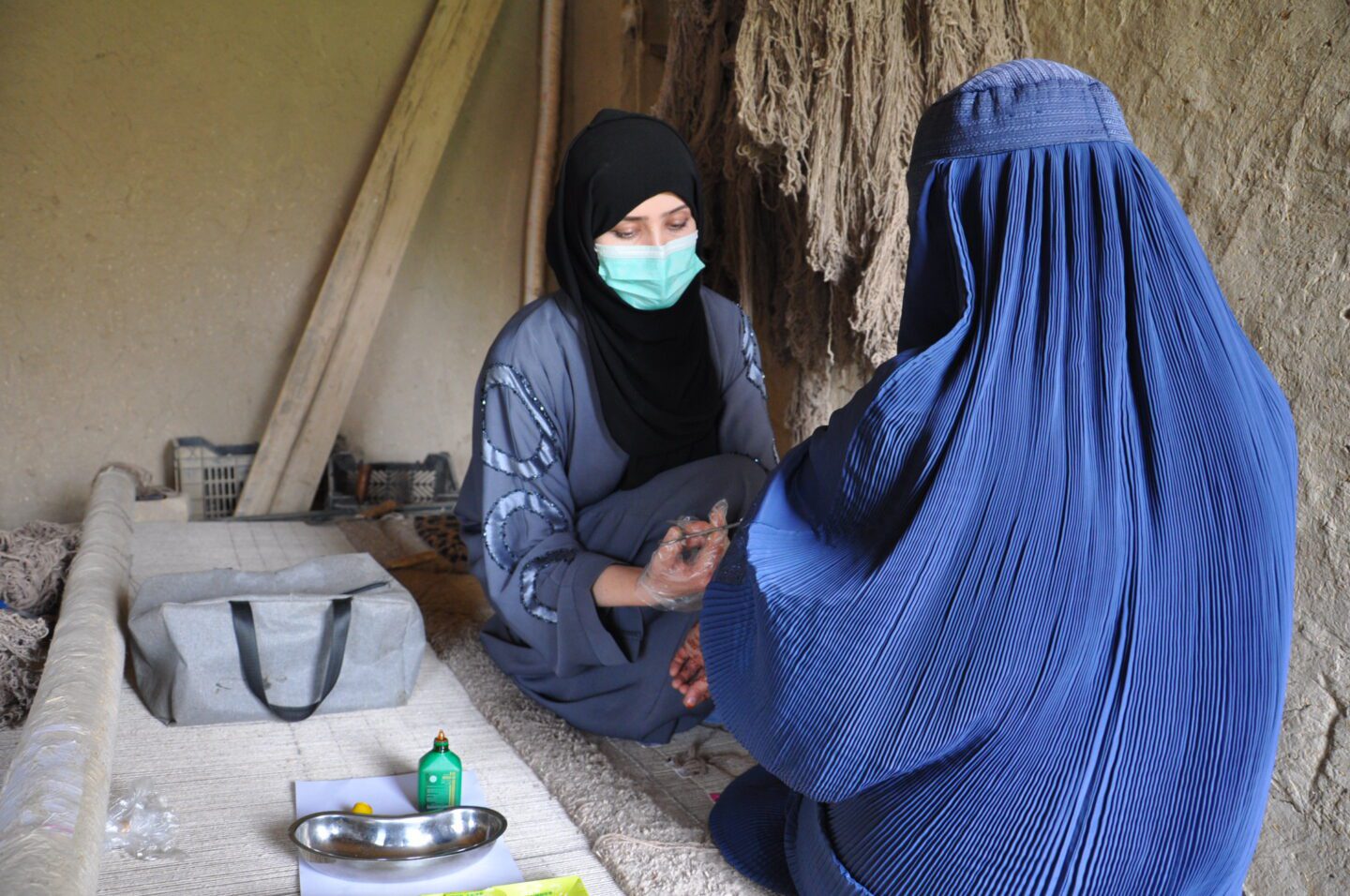
Zahra and Shukria’s Stories: Getting the Help They Need
The benefits of the program extend beyond prevention as well. In Bamiyan province, 40-year-old Zahra had suffered for years with chronic stomach pain that affected her daily life and ability to weave. After an assessment by a CHW and a short course of medication, her condition significantly improved. With her symptoms reduced and her strength returning, Zahra was able to re-engage in her work and daily routines. A follow-up visit confirmed her full recovery, a result that she attributed to both the medical support and the consistent follow-up offered by the CHWs.
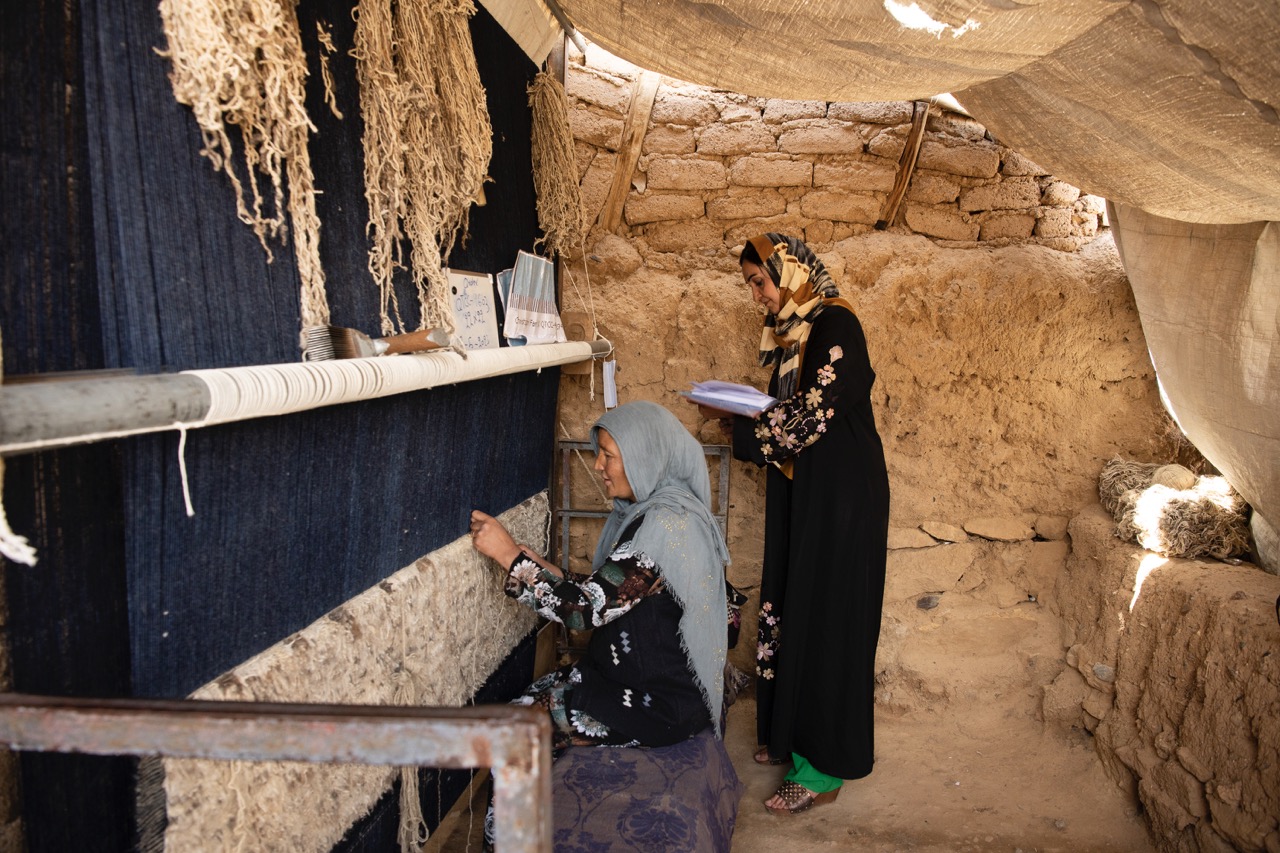
In the cases when health issues go beyond the training of CHWs, STEP provides direct support through mobile medical visits to rural weaving communities. While these trained doctors perform their own regular check-ups with communities, they can also be prompted by a CHW who encounters a case exceeding their know-how. One such case is Shukria, a home-based weaver in Saksen-Tepa, Jawzjan province, who had been suffering from chronic back pain after years of weaving. During a routine visit by STEP’s professional medical team, she and her husband—who also struggled with knee pain—received free consultations and personalized health advice. Rather than prescribing medication, the doctor recommended a daily exercise routine tailored to their conditions. With regular practice, both saw significant improvements and were able to return to work without pain. The case highlights how STEP’s layered approach—combining trained CHWs with professional medical outreach—can offer meaningful, practical healthcare even in remote areas.
Adapt and Evolve for Long-term Care
As the situation on the ground changes, CHWs continue to adapt to emerging needs. They prepare for seasonal disease outbreaks or changes in community health trends, allowing them to remain flexible and responsive in a rapidly changing environment. Which is exactly what Afghanistan looks like today. The increasing cuts to international development aid—most notably USAID—and forced expulsion of female healthcare workers from their jobs and education has dramatically diminished access to care—especially for women and children.
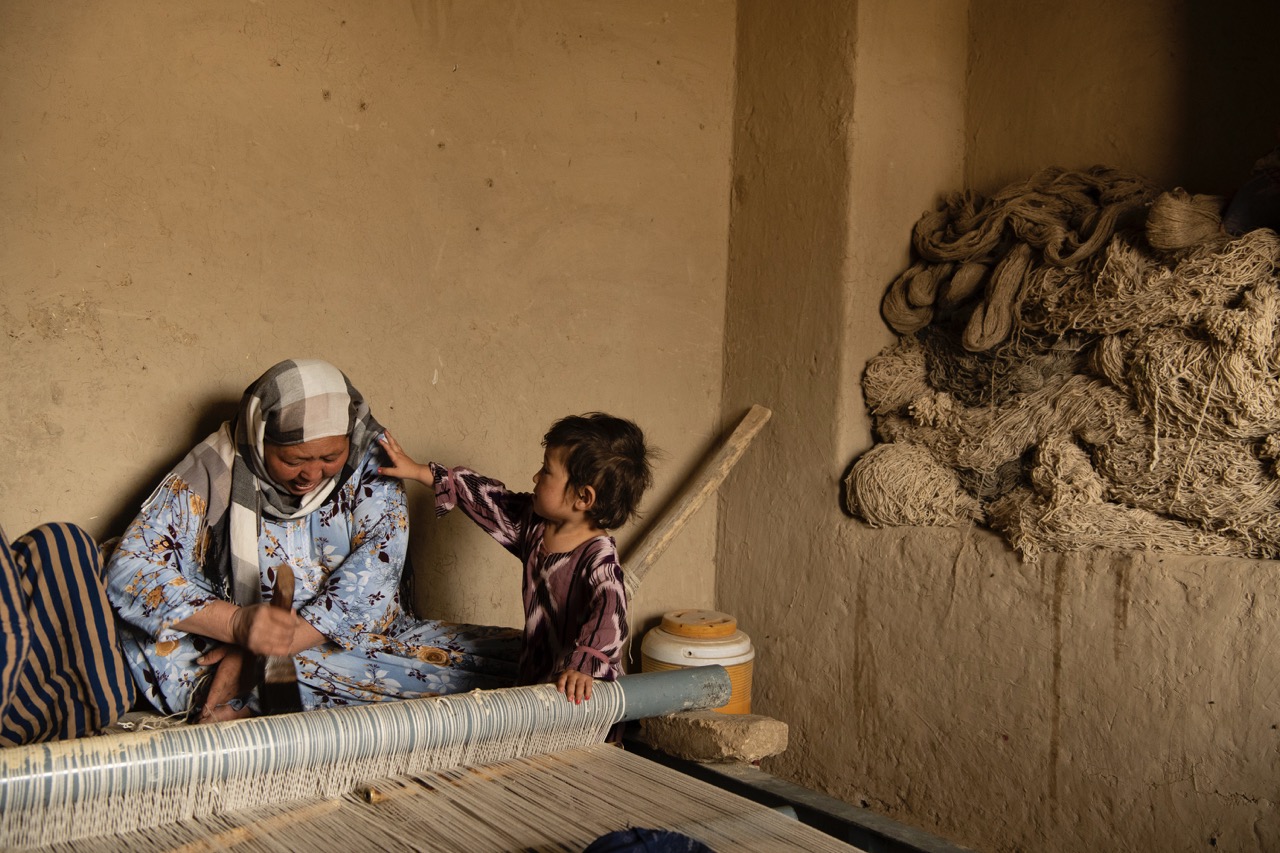
STEP’s approach of training women to support their peers bypasses some of the travel and movement barriers imposed by political restrictions, while building local capacity and trust. It also responds directly to Afghanistan’s legal obligations under international human rights law, which guarantee access to health without discrimination and emphasize the importance of education and preventive care. What began as a targeted intervention to support carpet weavers has grown into a sustainable healthcare delivery model—one that continues to serve communities far beyond its original scope.
With this context in mind, the CHW model stands out not only as a stopgap measure but as a practical response grounded in community engagement. The weavers participating in the program are not just preserving cultural heritage through their craft—but helping lay the foundation for healthier, more resilient communities.
In the wake of the devastating earthquakes in Afghanistan, your support can help provide urgent relief—shelter, food, and medical care—to families in need. Donate here.

